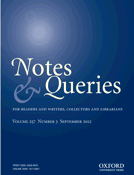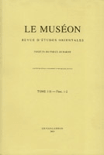
AEVUM-RASSEGNA DI SCIENZE STORICHE LINGUISTICHE E FILOLOGICHE
metrics 2024
Illuminating the Intersections of Linguistics and Philology.
Introduction
AEVUM-RASSEGNA DI SCIENZE STORICHE LINGUISTICHE E FILOLOGICHE is a distinguished academic journal published by VITA PENSIERO, based in Italy, focusing on the intricate fields of historical linguistics, philology, and cultural studies. With ISSN 0001-9593 and E-ISSN 1827-787X, it has been a significant contributor to scholarly discourse since its inception in 1979, with publications dating from 2001 to 2020 and from 2022 to 2023. Although it is categorized in Quartile Q4 across various disciplines including History, Linguistics, Literature, and Philosophy for the year 2023, AEVUM serves as a vital platform for nurturing discourse and advancing research in its fields, particularly appealing to scholars and professionals seeking to explore the intersections of language and culture. While the journal is not open access, it continues to maintain academic rigor and relevance, encouraging contributions that reflect current trends and theoretical developments. Researchers and students alike can benefit from its rich repository of language and historical research, drawing connections that contribute to a profound understanding of human society through the lens of language.
Metrics 2024
 0.10
0.10 0.10
0.10 0.10
0.10 8
8Metrics History
Rank 2024
Scopus
JCI (Web Of Science)
Quartile History
Similar Journals

Materiali e Discussioni per l Analisi dei Testi Classici
Connecting Scholars through Classical PerspectivesMateriali e Discussioni per l'Analisi dei Testi Classici is a distinguished academic journal published by Fabrizio Serra Editore that focuses on the rich field of Classics and Literature, serving as a vital platform for scholarly discourse and research. Featuring ISSN 0392-6338 and E-ISSN 1724-1693, this journal has been actively publishing since 2009, with a dedicated effort to analyze classical texts and foster critical discussions among academics and students alike. Although the journal operates without an open access model, it is recognized for its significant contributions, evidenced by its ranking in the third quartile (Q3) in both the Classics and Literature categories as of 2023. This places it among the notable outlets for literary and classical scholarship, with Scopus ranks highlighting its ongoing influence in these fields. Based in the heart of Italy, in Pisa, the journal not only enriches the academic community but also provides an essential resource for those engaged in the profound study of classical literature, inviting contributions that challenge and expand current knowledge and methodologies.

Palaeohispanica-Revista sobre Lenguas y Culturas de la Hispania Antigua
Decoding the Legacy of Hispania's Ancient VoicesPalaeohispanica-Revista sobre Lenguas y Culturas de la Hispania Antigua is a distinguished academic journal dedicated to the study of ancient Spanish languages and cultures. Published by the INST FERNANDO CATOLICO in Spain, this journal serves as an essential platform for scholars and researchers exploring the rich historical and linguistic heritage of Iberia. With a specific focus on the intersections of archaeology, history, linguistics, and cultural studies, Palaeohispanica has garnered substantial recognition, reflecting its commitment to high-quality research as evidenced by its rankings in prominent Scopus categories, reaching the 80th percentile in History and the 69th in Archaeology. While the journal operates without an Open Access option, it continues to contribute significantly to the academic discourse surrounding ancient Hispania from 2019 to 2023, ensuring that vital research is accessible to a discerning audience. As a Q3 and Q2 ranked publication in various relevant categories, it is an invaluable resource for professionals, researchers, and students eager to delve into the complexities of ancient languages and cultures.

NOTES AND QUERIES
Bridging Disciplines: Where Literary Studies Meet Linguistic InsightNOTES AND QUERIES is a prestigious journal published by Oxford University Press, dedicated to the exploration of literary studies, linguistics, and library sciences, with a history that extends back to 1849. This journal serves as a pivotal platform for scholars and practitioners to engage in dialogues that illuminate the nuances of text interpretation and linguistic inquiry. With its emphasis on both new research and critical discussion, NOTES AND QUERIES is indexed with notable Scopus rankings, reflecting its substantial contribution to the fields of Linguistics and Literary Theory. Although it currently resides in the Q4 quartile for Library and Information Sciences and Linguistics and Language, and Q3 for Literature and Literary Theory as of 2023, it remains a vital resource for both emerging and established scholars aiming to deepen their understanding of cultural and textual contexts. While the journal is not open access, it continues to foster an environment for scholarly collaboration and knowledge dissemination, making it an essential read for anyone invested in the arts and humanities.

Rivista di Filologia e di Istruzione Classica
Advancing Scholarship in Classics and LinguisticsRivista di Filologia e di Istruzione Classica is a distinguished academic journal published by LOESCHER EDITORE, dedicated to advancing the fields of Classics and Linguistics. Based in Italy, this journal serves as a vital platform for original research, critical analysis, and scholarly discussions that enrich our understanding of classical texts and educational methodologies in the humanities. With its unique focus on the intricate relationship between classical literature and language, the journal aims to facilitate discourse among researchers, educators, and students alike. Although categorized in the fourth quartile in both Classics and Linguistics, it provides an essential venue for scholars seeking to disseminate their findings and engage with contemporary academic debates. The journal is indexed in various databases, though recent coverage in Scopus has been discontinued. Researchers interested in exploring the complex layers of classical philology and instructional practices are encouraged to contribute to and engage with the innovative scholarship presented in this journal.

Museon
Exploring the Intersections of Thought and CultureMuseon, published by PEETERS in Belgium, is a prominent academic journal dedicated to exploring the interconnected realms of History, Linguistics, Literature, and Religious Studies. With an ISSN of 0771-6494 and an E-ISSN of 1783-158X, this journal has been a reliable source of scholarly discourse since its inception in 1972, with coverage extending from 1976 to 2023. While the journal does not offer open access, it maintains a respectable reputation, as evidenced by its category quartile rankings in 2023, positioning it in Q2 for Literature and Literary Theory and Q3 for the other disciplines. Researchers and students in these fields will find Museon to be an essential platform for disseminating and engaging with innovative and critical analyses. The journal's commitment to high-quality scholarship is reflected in its diverse scope and its ongoing contribution to the humanities, making it a vital resource for advancing knowledge and fostering academic dialogue.

INDO-IRANIAN JOURNAL
Illuminating the Path of Linguistic and Philosophical InquiryINDO-IRANIAN JOURNAL, published by BRILL, serves as a premier platform for scholarly research within the fields of linguistics, philosophy, and political science. Established in 1957 and continuing through 2024, this journal is unwavering in its commitment to advancing the understanding of Indo-Iranian studies by incorporating a rich diversity of perspectives and methodologies. With an ISSN of 0019-7246 and an E-ISSN of 1572-8536, it is indexed in Scopus and has garnered respectable rankings, including a Q3 classification in both Linguistics and Language and Philosophy for 2023, indicating its significance in the academic community. Although it does not offer open access, the journal prioritizes the dissemination of high-quality research, contributing to the ongoing discourse in these vital areas of study. By fostering a rigorous academic exchange, the INDO-IRANIAN JOURNAL is essential for researchers, professionals, and students dedicated to exploring the intricacies of Indo-Iranian interactions and their broader implications.

Nueva Revista Filologia Hispanica
Illuminating the Nuances of the Spanish LanguageNueva Revista Filologia Hispánica, published by COLEGIO MEXICO, A C, DEPT PUBLICACIONES, has been a pivotal resource in the field of Hispanic philology since its establishment in 1966, transitioning to an open-access model that enhances the accessibility of scholarly works in the area. With an ISSN of 0185-0121 and an E-ISSN of 2448-6558, the journal is housed in Mexico City and aims to publish innovative research that contributes to the understanding of the linguistic and cultural dynamics of the Spanish language. It consistently ranks in the Q3 category of Linguistics and Language for 2023, reflecting its commitment to academic excellence as demonstrated by its Scopus ranking in both Arts and Humanities and Social Sciences. With converged years from 2011 to 2024, the journal encourages contributions that inspire further discourse among researchers, professionals, and students, thus solidifying its importance as a scholarly platform in the linguistics landscape.

Lingua Italiana
Connecting Scholars and Enthusiasts of the Italian LanguageLingua Italiana is a distinguished journal published by FABRIZIO SERRA EDITORE, dedicated to the exploration and advancement of the Italian language in both its literary and linguistic contexts. With its ISSN 1724-9074 and E-ISSN 1826-8080, Lingua Italiana aims to foster scholarly dialogue among researchers, professionals, and students invested in Italian studies, linguistics, and cultural discourse. Located in Pisa, Italy, the journal provides a platform for rigorous peer-reviewed articles that reflect the latest research, theoretical frameworks, and critical analyses. Although it operates under a subscription model, the journal remains an invaluable resource due to its commitment to quality content and comprehensive coverage of contemporary issues affecting the Italian language. By contributing to Lingua Italiana, authors can not only enhance their academic footprint but also engage with a global audience interested in rich linguistic heritage and its evolution.

Linguistica e Filologia
Illuminating the Ties Between Language and Culture.Linguistica e Filologia is a prominent academic journal published by UNIV DEGLI STUDI BERGAMO that offers an Open Access platform since 2002, fostering scholarly communication in the fields of linguistics, philology, and comparative literature. With a commitment to advancing understanding in these disciplines, the journal serves as a vital resource for researchers, professionals, and students alike. Its content encompasses diverse theoretical and empirical studies, critiques, and analyses of language and literature, encouraging interdisciplinary dialogue. Hosted in the picturesque city of Bergamo, Italy, the journal aims to bridge gaps between historical and contemporary linguistic practices, enhancing the global discourse on language studies. With a focus on quality, transparency, and accessibility, Linguistica e Filologia plays a crucial role in shaping the future of linguistic scholarship and is an invaluable reference for anyone interested in the intricate relationships between language and culture.

BULLETIN OF THE INSTITUTE OF HISTORY AND PHILOLOGY ACADEMIA SINICA
Illuminating the Past, Bridging Cultures.BULLETIN OF THE INSTITUTE OF HISTORY AND PHILOLOGY ACADEMIA SINICA is a distinguished academic journal published by the Academia Sinica's Institute of History and Philology, based in Taiwan. Focused on the interdisciplinary fields of history, linguistics, archaeology, and religious studies, this journal provides a scholarly platform for researchers and professionals seeking to disseminate innovative findings and theoretical advancements. Despite its recent Q4 categorization in several areas including archaeology and linguistics, the journal is committed to fostering rigorous dialogue and enriching the academic community's understanding of historical and philological nuances. As an essential resource for those invested in the humanities, particularly within the context of Asian studies, it remains dedicated to enhancing visibility and accessibility to pivotal research. While currently not an open-access publication, it continues to shape the discourse within its field through concise contributions from credible scholars. Join the journal's ongoing mission to illuminate the complexities of history and language, bridging gaps across cultures and time.